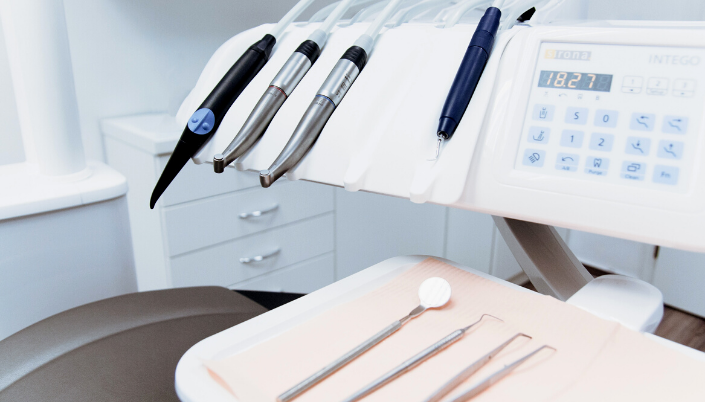

How Do I Pay for Medical Expenses If I Get Ill Abroad?
10 Sep 2018 by Olga Brighton
When planning a holiday, we think of sun, sea and good times, not lying in a hospital or clinic with a whopping six-figure medical bill to contend with.
We all like to think that it won’t happen to us, but would you know what to do with your medical expenses abroad if you fell ill while travelling?
Well firstly, make sure you buy travel insurance as soon as you have booked your trip. If you don’t, then you can’t expect to get anything paid and you could be out of pocket for thousands, just for the sake of saving a few pounds on buying insurance!
Why buy travel insurance?

No one is saying it’s compulsory, but it could be the most expensive mistake you ever make if you don’t buy travel insurance. Most policies cover emergency medical expenses relating to unforeseen accidents and illness whilst on holiday. This means you can often avoid paying costs upfront (apart from the policy excess), or at worst you can pay and claim.
Travel insurance will not only pay your medical bills, but a good policy will also cover your associated costs, like:
- Extra accommodation and travel costs;
- Medical evacuation (search and rescue included);
- Repatriation back home;
- Daily hospital benefit;
- Costs for family or a friend to stay with you if medically necessary.
When is the best time to buy insurance?
Buy as soon as you have pre-paid any travel costs associated for your trip. That way you will be covered even if you get an unexpected medical problem that prevents you from taking your holiday. This is picked up under the Cancellation section of your policy if you buy the right cover.
Read also: How to Undergo Pre-Existing Medical Conditions Screening
What if I have already travelled?
Most travel insurance companies won’t cover you if your trip has already started, but some do provide special Already Travelling insurance – including Globelink, so you can buy, even if you’ve already left home. Remember however that you won’t be covered for something that has already happened before you purchase.
Doesn’t the EHIC cover me?

The European Health Insurance Card (EHIC) is very useful. It’s free, and can cover you for some state-provided health care if you are an EU resident, travelling within the EU (plus Iceland, Liechtenstein, Norway and Switzerland). However, state healthcare varies from country to country and its only available in the EU and can be very limited in some locations. You won’t be covered for private medical expenses, repatriation costs, or additional expenses and if you need any element of these, you will start to incur hefty costs very quickly. So it’s best NOT to rely on the EHIC for everything.
What’s the procedure for paying medical bills if I have travel insurance?
If you’ve been sensible enough to buy travel insurance, you’ll benefit from the very fine-tuned, customer service that most insurers have in place for paying medical bills. Most good travel insurance policies have a 24 hour medical assistance service that you can call if you have a medical emergency abroad. Once they are involved, they will usually co-ordinate all the assistance you require and pre-authorise costs directly with the medical providers – so you don’t have to shell out first. This is a fantastic advantage, as it means you get the medical help and support you need and you don’t have to worry about costs or language barriers. They usually have multi-lingual and medically trained staff on hand to help with any medical emergency that could arise.
It’s best to contact them as soon as you know you may need to go to hospital. That way they are involved at the outset and can pre-authorise all the necessary expenses and carry out any necessary checks with your GP.
If you do happen to pay for some costs yourself, perhaps for outpatient treatment, or a simple doctor visit, then make sure you get a receipt and details of the medical treatment you received. You will need this to submit a claim.
How do you make a travel insurance medical expenses claim?

The exact procedure will vary depending on the insurance policy, but your travel insurance policy will detail the full procedure you must follow. Most will require you to submit a claim form either on line or by post. Basic steps to follow:
- Always carry your travel insurance details and contact details with you when you travel
- Keep receipts, medical paperwork and copies of any other documents that help substantiate the incident.
- Submit a claim as soon as possible. Some insurers set a time limit for receiving claims
- Make sure your travel insurance policy covers what you are claiming for – and that your claim is higher than any excess on the Policy section you are claiming under. It will save time and avoid disappointment.
- If you haven’t told your insurer about a pre-existing medical condition, it may adversely affect your claim.
- Don’t expect to be covered if you were under the influence of alcohol or illegal substances, or acting recklessly when you were injured or fell ill - as it’s probably a policy exclusion.
- Answer all questions that the claims handler asks and co-operate as fully as possible as this will help get your claim sorted faster.
- Most travel insurance policies won’t cover non-urgent treatment that can wait until you return home. It’s there to help cover necessary, emergency medical expenses to stabilise your condition so that you can travel safely.
The best advice of all is to always read the cover before you buy, so that you make the right choice. And most important of all, travel safe and have a great holiday! With the peace of mind that you have the right policy in place if you do have an unforeseen medical mishap!
Read also: Exclusions Relating to Health and Medical Conditions – Should You Worry?
We accept

.png)